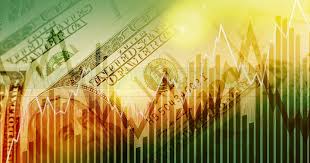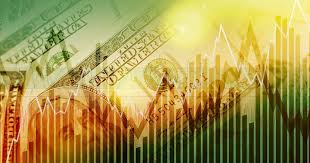
According to a majority of economists polled by Reuters who forecast growth will not accelerate the way the Trump administration has predicted, the U.S. economic expansion will last at least another two years.
It has taken unusually long time for the recovery from the devastating 2007-2009 financial crisis. If the poll predictions come true it would mark the longest economic expansion in more than 150 years as the latest growth stretch has already lasted 96 months.
Forecasters were led to lower expectations again slightly in the poll of more than 100 economists taken Aug. 7-10 because growth has still not picked up as quickly as thought recently.
Still, according to 34 of 57 economists who answered an additional question on the business cycle, the U.S. expansion has more than two years to go. 21 said it would last two to three years and 13 said more than three years.
"Expansions don't go on forever," said Sam Bullard, senior economist at Wells Fargo, who said there was another two to three years to go. "Steady, moderate growth looks like it could stay in place for a while."
The expansion would only last one to two years, the remaining 23 respondents said. None of the economists, based in the United States, Canada and Europe, expected it to end within a year.
Mainly through sweeping tax cuts, annual growth is aimed to be boosted to 3 percent by U.S. President Donald Trump's administration. But significant fiscal stimulus appears less likely and the economy has shown no signs of accelerating to meet that target with the failure to repeal and replace the Affordable Care Ac.
Based on National Bureau of Economic Research data, compared with previous cycles of this length, predictions pointed to continued sluggish average growth in the current economic cycle.
Down from 2.7 percent in the July poll GDP likely grew at a 2.6 percent annualized pace in the second quarter.
Down slightly from the 2.2 percent to 2.5 percent predicted the previous month, the latest poll suggests 2.1 percent to 2.5 percent growth each quarter to the end of next year. But during this expansion, growth has not been that steady. And it is not in any economy.
Slower spending due to sluggish wage growth even though the economy is close to full employment explained the modest outlook broadly. And there are fading expectations for tax cuts from the Trump administration.
It has pushed the dollar down nearly 9 percent against a basket of currencies even though that has not deterred U.S. stock markets, which have been setting record highs all year.
According to 94 of 100 economists in the Reuters poll, the Fed is still expected to announce steps to start shrinking its more than $4 trillion balance sheet in September despite that subdued inflation outlook.
Taking the fed funds rate to a range of 1.25 percent to 1.50 percent, Fed would raise interest rates by 25 basis points in October or December, the poll also predicted. In 2018, three more rate hikes of the same amount are expected to be done by the Fed.
"What the Fed is doing right now is saying the healthy economy combined with strong financial conditions more than make up for the disappointment in inflation," said Ethan Harris, head of global economics at Bank of America Merrill Lynch.
"They are very likely to announce their balance sheet shrinkage in September and see better-than-even odds they will even hike in December."
(Source:www.reuters.com)
It has taken unusually long time for the recovery from the devastating 2007-2009 financial crisis. If the poll predictions come true it would mark the longest economic expansion in more than 150 years as the latest growth stretch has already lasted 96 months.
Forecasters were led to lower expectations again slightly in the poll of more than 100 economists taken Aug. 7-10 because growth has still not picked up as quickly as thought recently.
Still, according to 34 of 57 economists who answered an additional question on the business cycle, the U.S. expansion has more than two years to go. 21 said it would last two to three years and 13 said more than three years.
"Expansions don't go on forever," said Sam Bullard, senior economist at Wells Fargo, who said there was another two to three years to go. "Steady, moderate growth looks like it could stay in place for a while."
The expansion would only last one to two years, the remaining 23 respondents said. None of the economists, based in the United States, Canada and Europe, expected it to end within a year.
Mainly through sweeping tax cuts, annual growth is aimed to be boosted to 3 percent by U.S. President Donald Trump's administration. But significant fiscal stimulus appears less likely and the economy has shown no signs of accelerating to meet that target with the failure to repeal and replace the Affordable Care Ac.
Based on National Bureau of Economic Research data, compared with previous cycles of this length, predictions pointed to continued sluggish average growth in the current economic cycle.
Down from 2.7 percent in the July poll GDP likely grew at a 2.6 percent annualized pace in the second quarter.
Down slightly from the 2.2 percent to 2.5 percent predicted the previous month, the latest poll suggests 2.1 percent to 2.5 percent growth each quarter to the end of next year. But during this expansion, growth has not been that steady. And it is not in any economy.
Slower spending due to sluggish wage growth even though the economy is close to full employment explained the modest outlook broadly. And there are fading expectations for tax cuts from the Trump administration.
It has pushed the dollar down nearly 9 percent against a basket of currencies even though that has not deterred U.S. stock markets, which have been setting record highs all year.
According to 94 of 100 economists in the Reuters poll, the Fed is still expected to announce steps to start shrinking its more than $4 trillion balance sheet in September despite that subdued inflation outlook.
Taking the fed funds rate to a range of 1.25 percent to 1.50 percent, Fed would raise interest rates by 25 basis points in October or December, the poll also predicted. In 2018, three more rate hikes of the same amount are expected to be done by the Fed.
"What the Fed is doing right now is saying the healthy economy combined with strong financial conditions more than make up for the disappointment in inflation," said Ethan Harris, head of global economics at Bank of America Merrill Lynch.
"They are very likely to announce their balance sheet shrinkage in September and see better-than-even odds they will even hike in December."
(Source:www.reuters.com)














